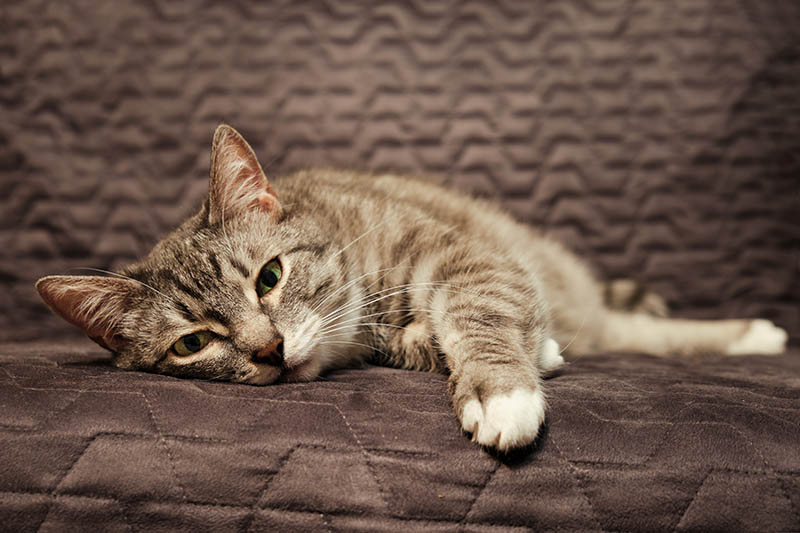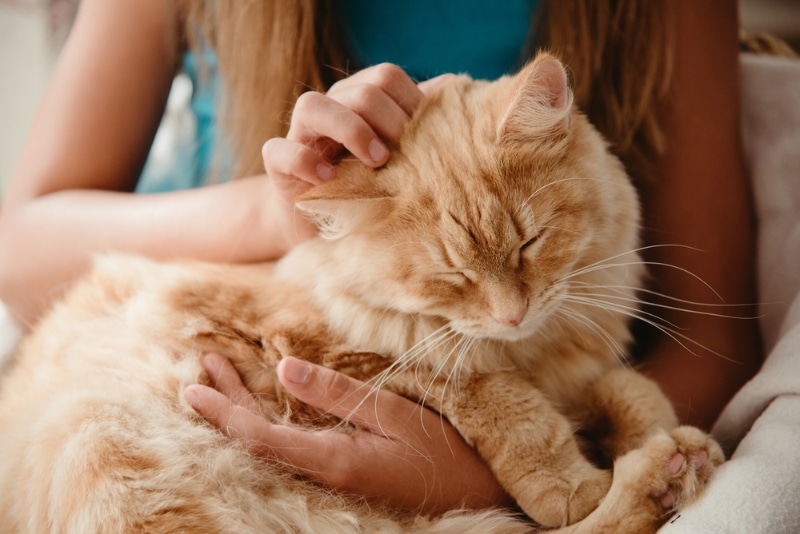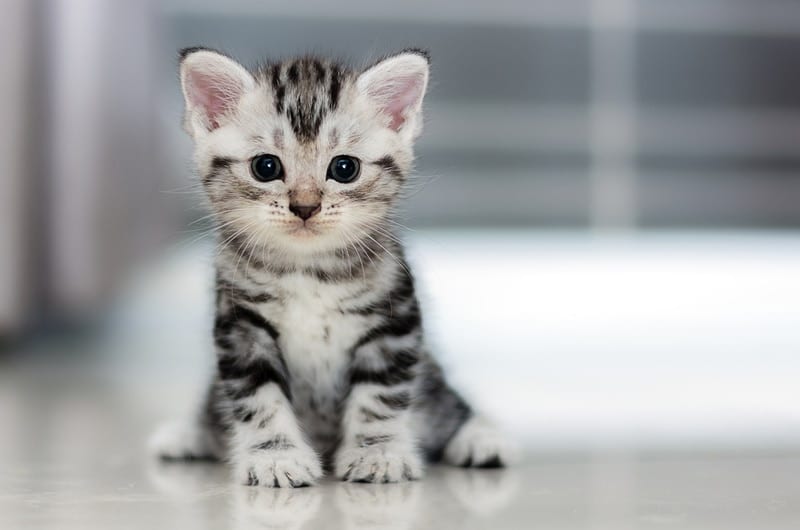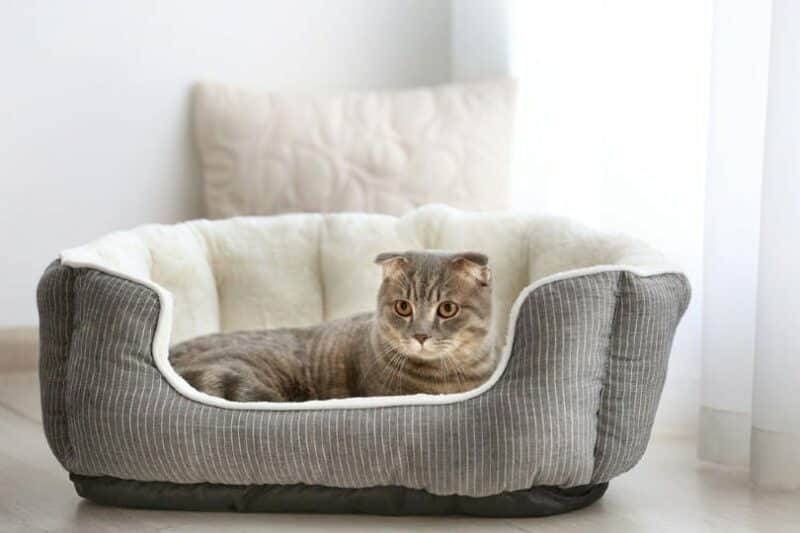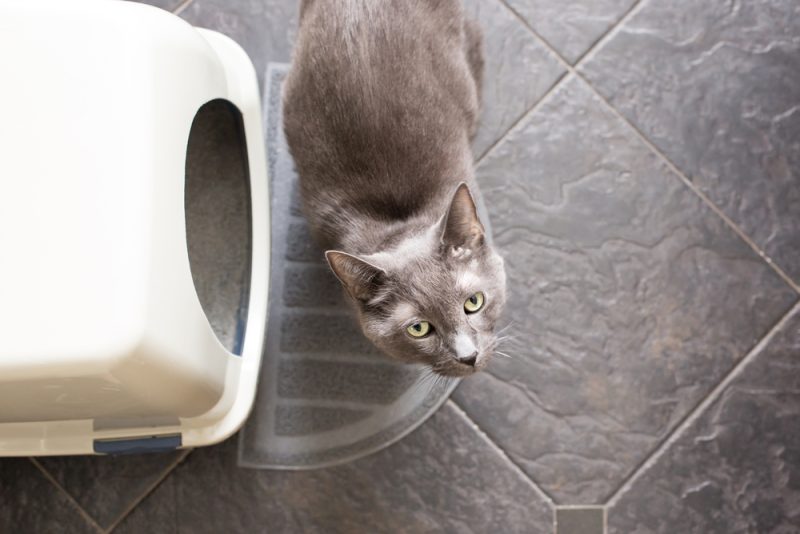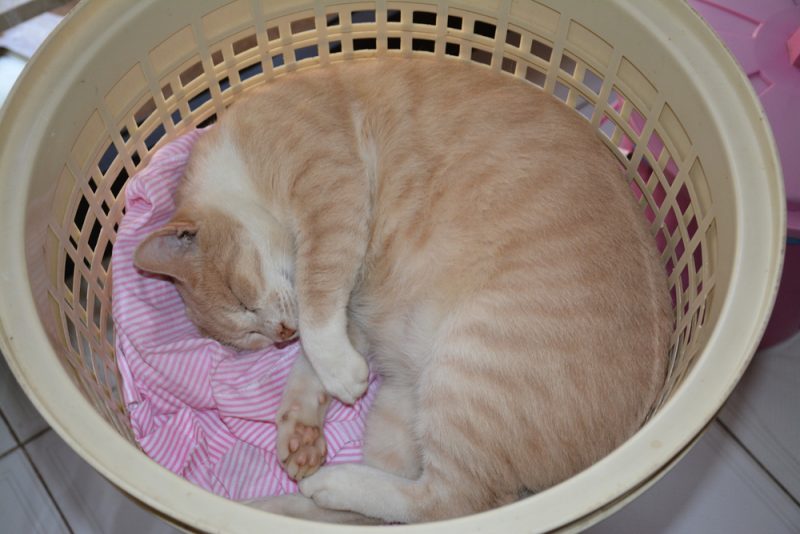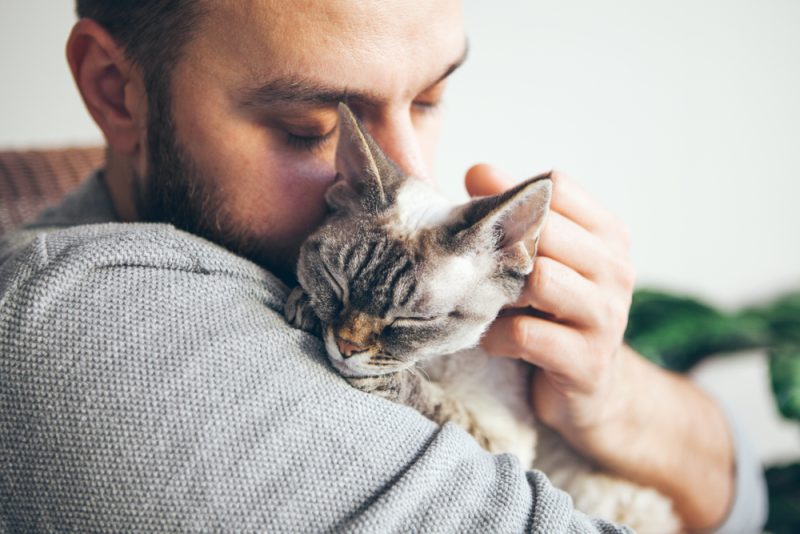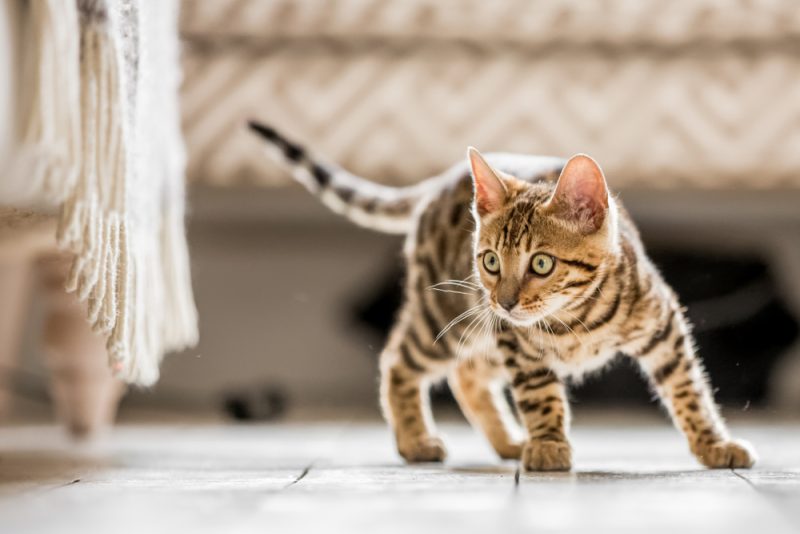In this article
Have you ever wondered if your cat needs to go to the bathroom? For example, you might be thinking of taking your kitty on a long-distance trip in the car and want to know when your feline friend would need a potty break. Perhaps you’ve recently adopted a kitten that’s had a few accidents, so you’d like help determining when your companion requires the bathroom. We’re here to help! Read on for a detailed guide that you can use to tell if your cat needs to pee.

The Basics
Before delving into the step-by-step discussion for figuring out if your cat has to urinate, you should understand a few basics about cat urinary health.
How Often Are Cats Supposed to Pee?
Healthy cats pee anywhere from two to four times per day. If your cat takes five or six trips to the litter box in a day, it’s probably not an issue if it’s a regular pattern that’s been going on for quite some time and your cat is otherwise healthy. However, you might want to have your loved one seen by a veterinarian if there’s a sudden increase in the number of times that they head to the litter box.
If you’re planning a long-distance trip in the car or even on an airplane and are wondering how long your cat can hold their urine, you’ll be happy to know that most cats can safely go around 24 hours without hitting the toilet, so a few hours away from a litter box won’t hurt them, but it shouldn’t be longer than 24 hours. This applies to healthy adult cats, while kittens, senior cats, and those suffering from health issues or taking certain medications will need to use the litter box more frequently.
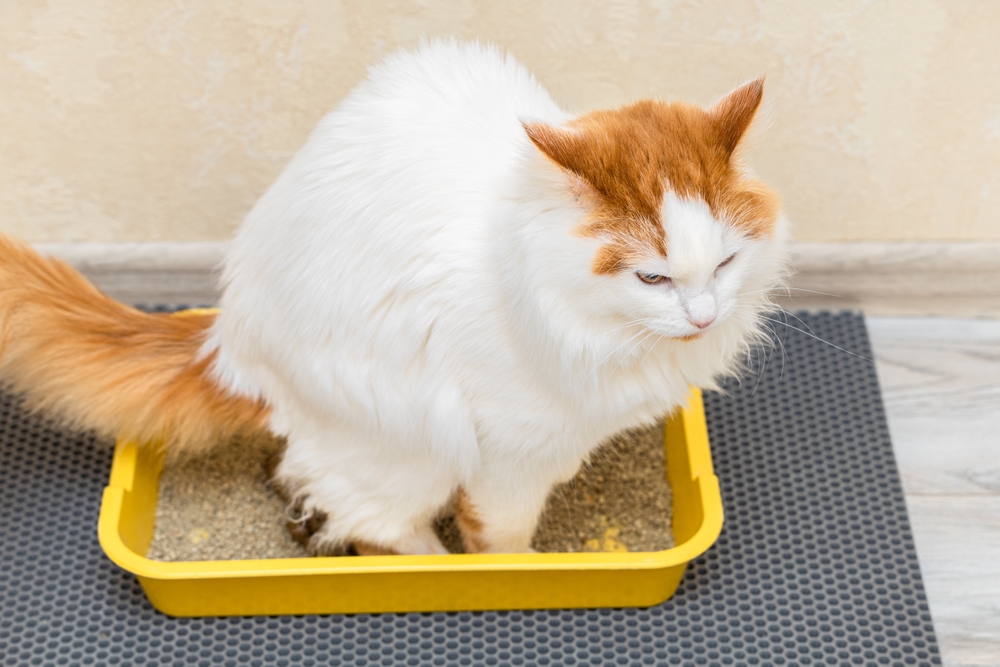
How Often Do Kittens Pee?
Kittens normally pee (and poop) soon after they eat, at least for the first few weeks. They also tend to urinate shortly after waking up. With help and guidance, kittens will transition to using the litter box on their own when they’re around 3 or 4 weeks old.
Digging holes to bury waste is a deeply ingrained and instinctual behavior. Most kittens begin digging when they need to go to the bathroom, even if they haven’t seen their mom doing so. If you adopt a very young kitten that needs help learning to use the litter box, you might need to keep an eye out for these behaviors and be ready to pick your kitty up and put them in the litter box to help them out. Make sure to provide your kitten with lots of encouragement when they have to go to the bathroom, and praise them lavishly when they use the litter box appropriately.
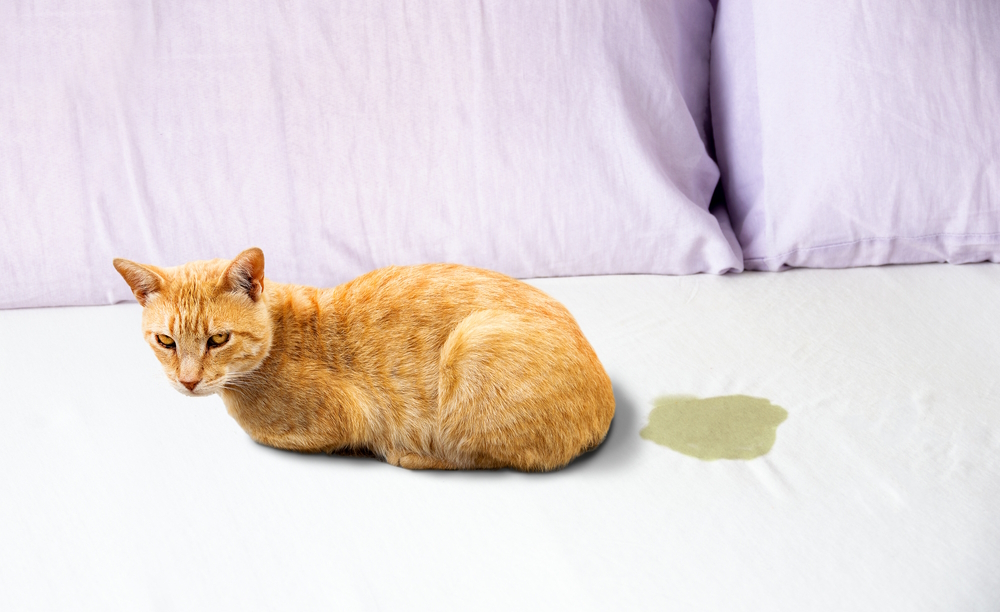
Male Cats & Urethral Blockages
Male cats are particularly susceptible to developing urinary blockages, and this is one thing to be particularly aware of if you have a male cat. This means they are unable to pass urine, due to an obstruction of their urethra. The obstruction is often caused by plugs consisting of inflammatory material, mucus, crystals or even stones, but there could be other factors or causes as well. If left untreated, a urinary blockage will be fatal.
Struvites are crystal collections, and they could be just one of the possible reasons that make it difficult or impossible for the cat to urinate. Cats experiencing difficulty urinating because of struvite formation or any other cause are often in extreme pain. At first, you’ll notice your kitty heading to the litter box more often than normal and squatting for longer, while either passing only a few drops of urine or none at all.
Cats suffering from a urinary blockade will start straining and squatting, going in and out of the litter box, and may also gravitate toward cool smooth surfaces to try and pee—look for small urine puddles in places like showers, hardwood floors, and cool, tiled locations. If your cat is struggling to pee, passing very little or no urine at all, or there is blood in your cat’s urine, they are crying while in the litter box, having a painful or tense abdomen, refusing food, or vomiting, it’s time to head to the veterinarian immediately, as this is an emergency. If you catch it early enough, your kitty may be able to receive treatment and go home, if they only have cystitis rather than a blockage, as the presenting signs will be quite similar. Otherwise, your cat may need to be hospitalized if the condition has progressed too far. Failure to get your cat the healthcare they need in a timely fashion can result in kidney failure, life-threatening electrolyte disbalance, bladder rupture, and death.
After a urinary blockage that has been treated promptly and successfully, male kitties can live long, happy, and healthy lives. Once they get through the initial crisis and receive treatment or are started on a long term management plan for the underlying cause of the blockage, they can recover. After the acute phase is controlled through catheterization and analgesics, your cat will have better chances of making a full recovery. However, they may need to eat a special diet and drink plenty of water in the future, and for cases that relapse, there are surgical options that your vet can discuss with you.

The 5 Signs That Your Cat Needs to Pee
Cats tend to use the bathroom at regular times, which when combined with the behavioral indicators discussed previously, can give you a pretty good idea of whether or not your cat needs to go to the litter box. It’s also normal for cats to take a trip to the bathroom after eating breakfast, dinner, or a sizable snack, or soon after waking up. Adult cats will generally hold it for longer than kittens, which isn’t always the healthiest way to go about it.
1. Digging Holes
All cats, not just kittens, instinctively dig holes before using the bathroom and then cover it up—it’s a way of protecting themselves from predators in the wild. Without being able to smell a cat’s waste, it’s harder for predators to know a cat’s around. Indoor cats mirror this behavior by sometimes even “digging” in soft materials like blankets and carpets, but generally by doing it in their litter box.
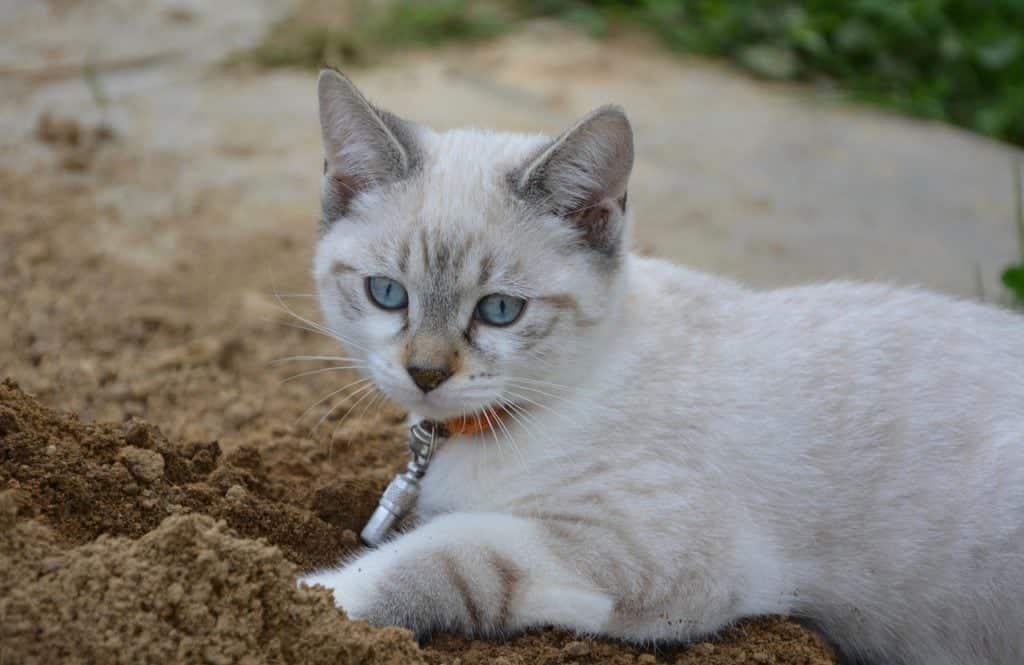
2. Vocalizing
Cats will often meow if something is causing them physical discomfort or when they’re trying to get their human’s attention. When an outdoor cat stands by the door, meows, and looks at you with an intense stare, they’re signaling to you that they want to go outside most likely for a bathroom break.
3. Trying to Get Outside
If your outdoor-indoor cat is standing impatiently by the door, it probably means they want to get some fresh air and go to the toilet. Similarly, if you see an indoor cat pawing at a door that provides access to the room where their litter box is located, it’s safe to assume they need access to their potty. Always keep their litter box location readily available so they can use the toilet when they need to without holding it in, whether you are there or not.
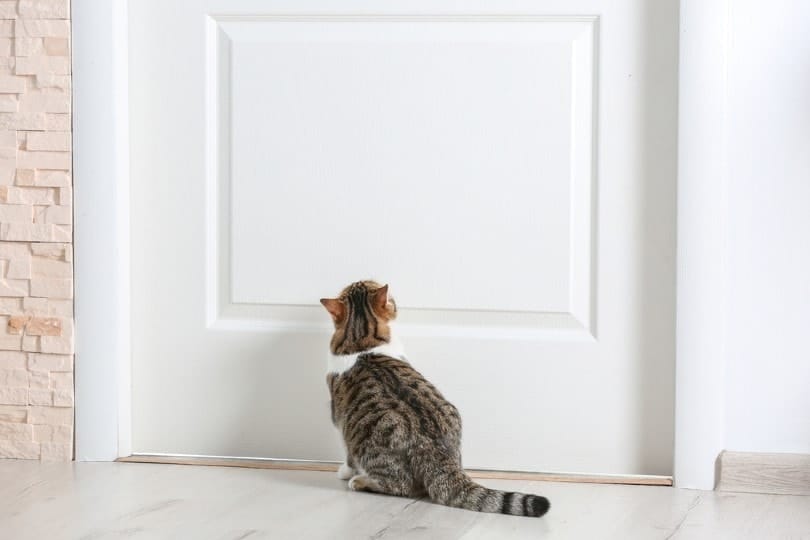
4. Pacing & Being Hyper
Some cats will pace back and forth in front of the door if they really have to urinate. You’ll see this mostly in outdoor cats that have become restless, waiting for their turn to get out of the house. If your cat is pacing and meowing in discontent, pawing at the door, following you around intently, or blocking your way, it’s safe to assume they want to go outside for a bathroom break.
5. Squatting
A cat that squats outside the litter box could be a sign they need to hit the toilet, or that they are suffering from a urinary health issue. If you’re in the process of toilet training your kitten, this is a surefire sign they need to relieve themselves, and it’s probably a good idea to pick them up and put them in the right place. If your adult or older cat is exhibiting the same behavior, it’s a bit more concerning. Help them reach the litter box if it’s inaccessible, and then take them to the veterinarian for a checkup.
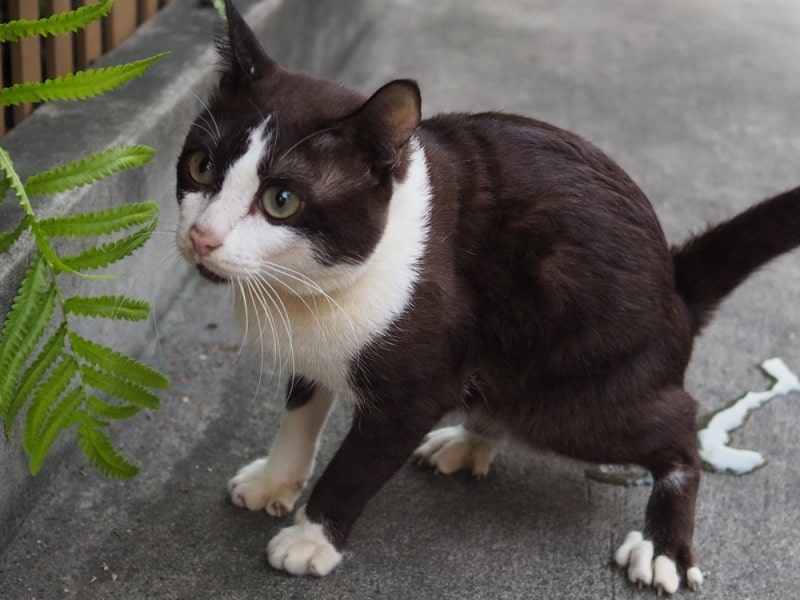

Final Thoughts
Cats don’t pee outside the litter box to be difficult. It’s usually a sign, at least with fully grown kitties, that something is very wrong. It could be that their litter box needs cleaning, they don’t feel well, or a fellow feline housemate is harassing them. Get them checked by a vet in that case as soon as possible. With an enzymatic cleaner, you can clean up the mess and prevent your cat from urinating in the same spot.
- See also: Detox For Cats: Vet-Verified Facts & FAQ
Featured Image Credit: cunaplus, Shutterstock



